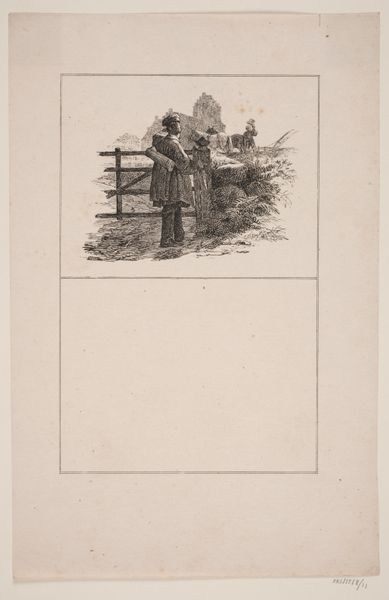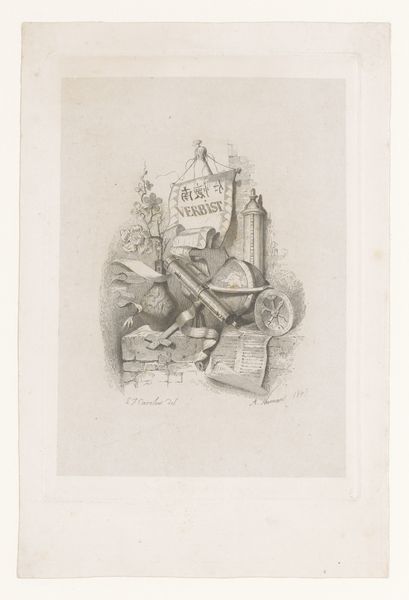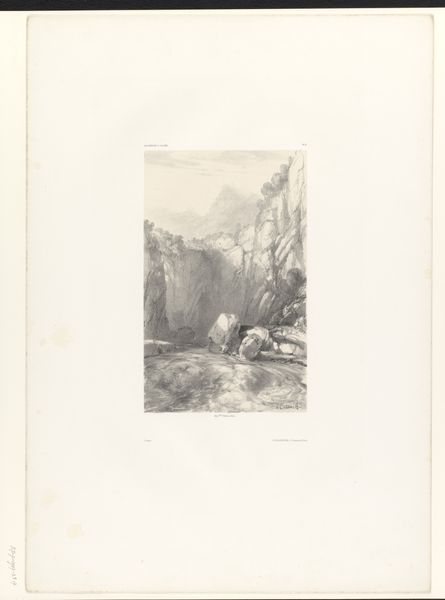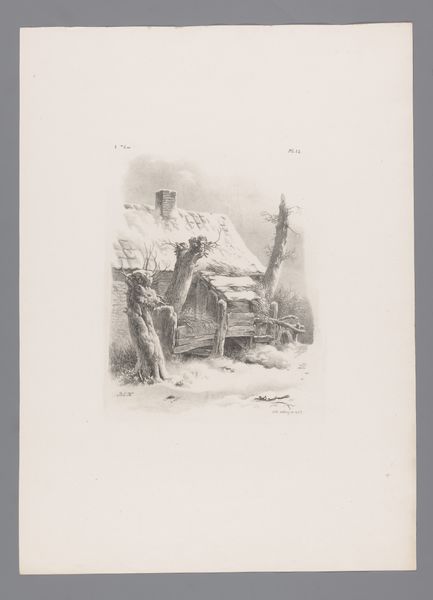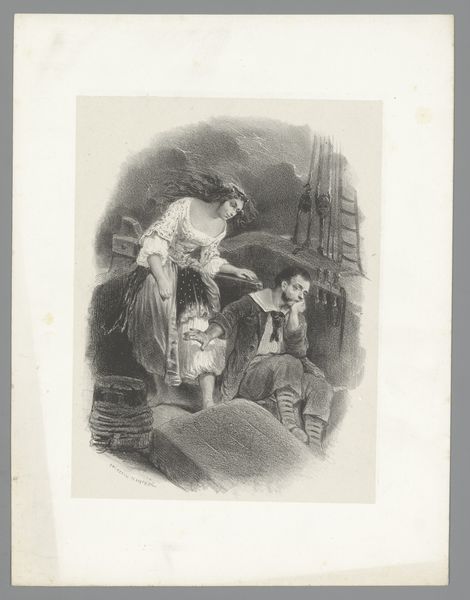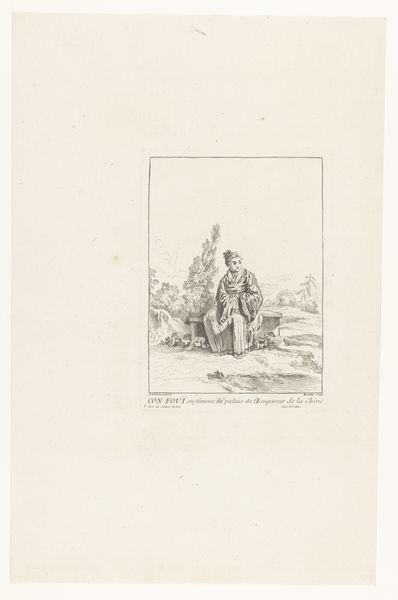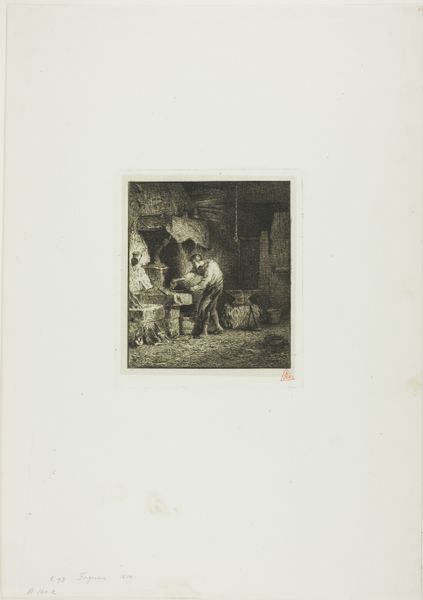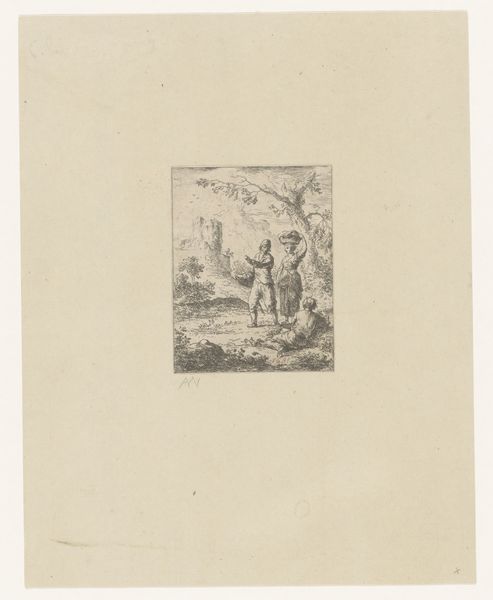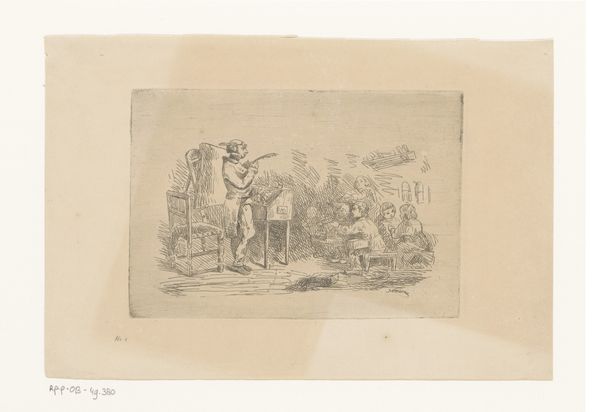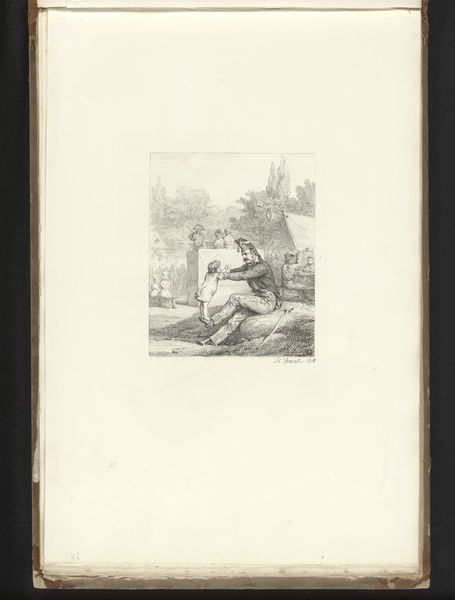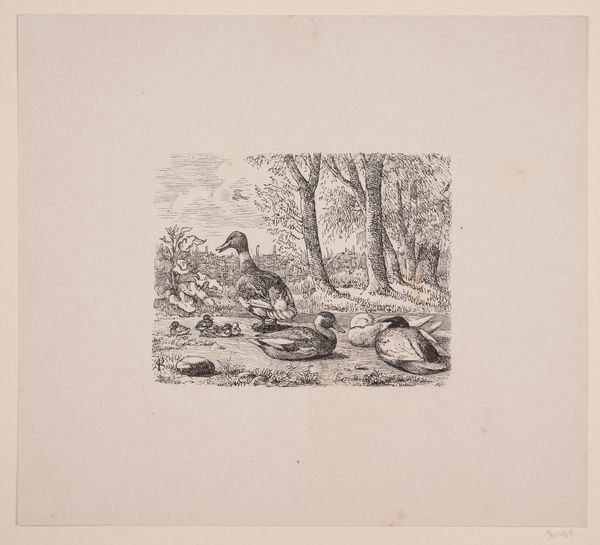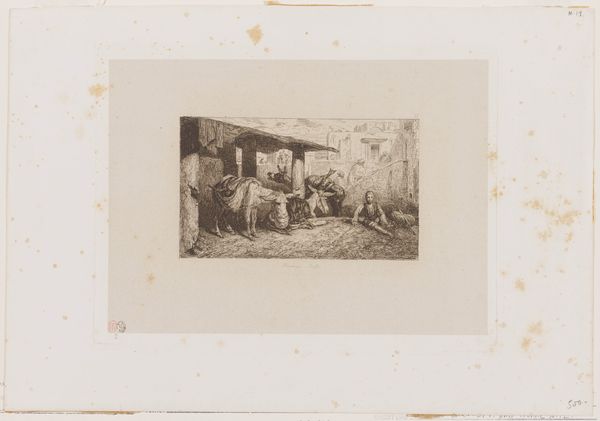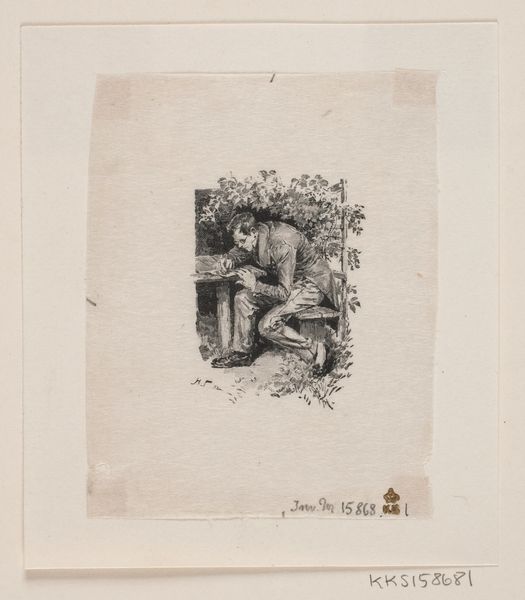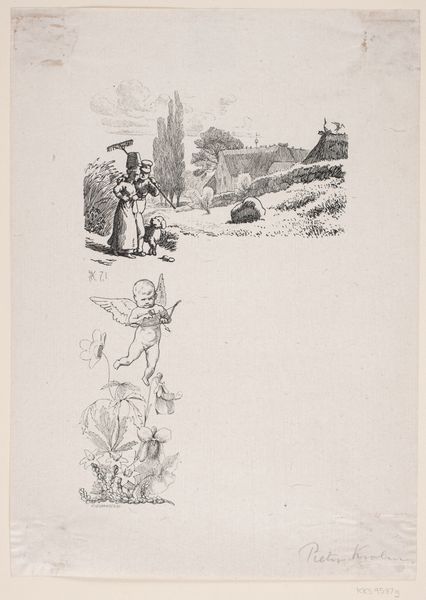
drawing, pencil, engraving
#
drawing
#
romanticism
#
pencil
#
pencil work
#
academic-art
#
engraving
Dimensions: height 260 mm, width 176 mm
Copyright: Rijks Museum: Open Domain
Auguste Numans created this image as a lithograph, in the Netherlands, in 1863. He created a still life referencing the portrait of Andreas Vesalius, the 16th-century anatomist and physician. Images such as this were made in a culture steeped in the tradition of depicting vanitas. The portrait above the table serves to remind us that even great men will die and that the pursuit of knowledge is ultimately a futile exercise. The skull and the extinguished lamp on the table amplify this message. We might ask ourselves if Numans' message is self-consciously conservative. The image evokes a world in which the church was the ultimate source of all knowledge and authority. Is he critiquing the rise of science and the enlightenment? To understand the image fully we might explore the state of religious and scientific institutions in the Netherlands in the mid-nineteenth century. Only through this kind of historical investigation can we be certain of the image's meaning.
Comments
No comments
Be the first to comment and join the conversation on the ultimate creative platform.
